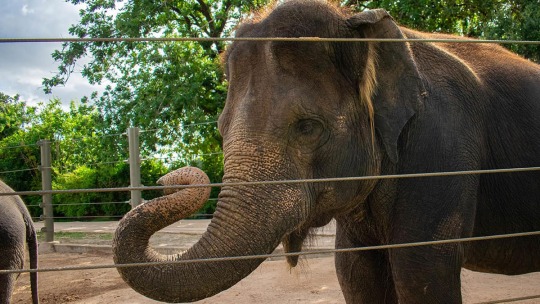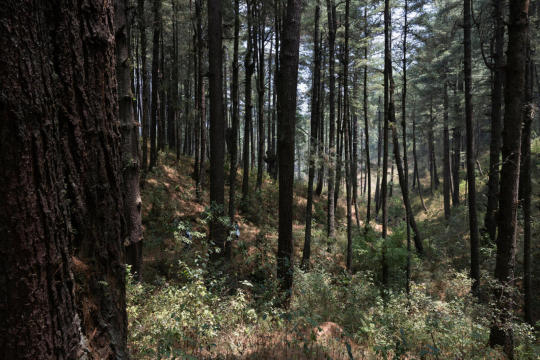#California farm
Explore tagged Tumblr posts
Text

Trying out an industrial scene for the first time. On a local walnut farm, and this is the back where they press and process the oil
#oil painting#painting#fine art#original art#traditional art#art#art study#still life#big sky#farmhouse#farmland#organic farming#organic farm#local farms#local art#California art#california artist#California farm#farm
4 notes
·
View notes
Text

Ant Farm, Media Burn, San Francisco, California, 1975
1K notes
·
View notes
Text
Bullet the Bull
#bullet#bull#baby bull#baby cows#cow#cattle#cowboy#cowboyup#cute cows#cow lick#cow love#bucking bronco#ranch#farm living#california
623 notes
·
View notes
Text
Good News - July 15-21
Like these weekly compilations? Tip me at $kaybarr1735! (Or check out my new(ly repurposed) Patreon!)
1. Thai tiger numbers swell as prey populations stabilize in western forests

“The tiger population density in a series of protected areas in western Thailand has more than doubled over the past two decades, according to new survey data. […] The most recent year of surveys, which concluded in November 2023, photographed 94 individual tigers, up from 75 individuals in the previous year, and from fewer than 40 in 2007. […] A total of 291 individual tigers older than 1 year were recorded, as well as 67 cubs younger than 1 year.”
2. Work starts to rewild former cattle farm

“Ecologists have started work to turn a former livestock farm into a nature reserve [… which] will become a "mosaic of habitats" for insects, birds and mammals. [… R]ewilding farmland could benefit food security locally by encouraging pollinators, improving soil health and soaking up flood water. [… “N]ature restoration doesn't preclude food production. We want to address [food security] by using nature-based solutions."”
3. Harnessing ‘invisible forests in plain view’ to reforest the world

“[… T]he degraded land contained numerous such stumps with intact root systems capable of regenerating themselves, plus millions of tree seeds hidden in the soil, which farmers could simply encourage to grow and reforest the landscape[….] Today, the technique of letting trees resprout and protecting their growth from livestock and wildlife [… has] massive potential to help tackle biodiversity loss and food insecurity through resilient agroforestry systems. [… The UN’s] reported solution includes investing in land restoration, “nature-positive” food production, and rewilding, which could return between $7 and $30 for every dollar spent.”
4. California bars school districts from outing LGBTQ+ kids to their parents

“Gov. Gavin Newsom signed the SAFETY Act today – a bill that prohibits the forced outing of transgender and gay students, making California the first state to explicitly prohibit school districts from doing so. […] Matt Adams, a head of department at a West London state school, told PinkNews at the time: “Teachers and schools do not have all the information about every child’s home environment and instead of supporting a pupil to be themselves in school, we could be putting them at risk of harm.””
5. 85% of new electricity built in 2023 came from renewables

“Electricity supplied by renewables, like hydropower, solar, and wind, has increased gradually over the past few decades — but rapidly in recent years. [… C]lean energy now makes up around 43 percent of global electricity capacity. In terms of generation — the actual power produced by energy sources — renewables were responsible for 30 percent of electricity production last year. […] Along with the rise of renewable sources has come a slowdown in construction of non-renewable power plants as well as a move to decommission more fossil fuel facilities.”
6. Deadly cobra bites to "drastically reduce" as scientists discover new antivenom

“After successful human trials, the snake venom antidote could be rolled out relatively quickly to become a "cheap, safe and effective drug for treating cobra bites" and saving lives around the globe, say scientists. Scientists have found that a commonly used blood thinner known as heparin can be repurposed as an inexpensive antidote for cobra venom. […] Using CRISPR gene-editing technology […] they successfully repurposed heparin, proving that the common blood thinner can stop the necrosis caused by cobra bites.”
7. FruitFlow: a new citizen science initiative unlocks orchard secrets

“"FruitWatch" has significantly refined phenological models by integrating extensive citizen-sourced data, which spans a wider geographical area than traditional methods. These enhanced models offer growers precise, location-specific predictions, essential for optimizing agricultural planning and interventions. […] By improving the accuracy of phenological models, farmers can better align their operations with natural biological cycles, enhancing both yield and quality.”
8. July 4th Means Freedom for Humpback Whale Near Valdez, Alaska

“The NOAA Fisheries Alaska Marine Mammal Stranding Hotline received numerous reports late afternoon on July 3. A young humpback whale was entangled in the middle of the Port of Valdez[….] “The success of this mission was due to the support of the community, as they were the foundation of the effort,” said Moran. [… Members of the community] were able to fill the critical role of acting as first responders to a marine mammal emergency. “Calling in these reports is extremely valuable as it allows us to respond when safe and appropriate, and also helps us gain information on various threats affecting the animals,” said Lyman.”
9. Elephants Receive First of Its Kind Vaccine

“Elephant endotheliotropic herpesvirus is the leading cause of death for Asian elephants (Elephas maximus) born in facilities in North America and also causes calf deaths in the wild in Asia. A 40-year-old female received the new mRNA vaccine, which is expected to help the animal boost immunity[….]”
10. Conservation partners and Indigenous communities working together to restore forests in Guatemala

“The K’iche have successfully managed their natural resources for centuries using their traditional governing body and ancestral knowledge. As a result, Totonicapán is home to Guatemala’s largest remaining stand of conifer forest. […] EcoLogic has spearheaded a large-scale forest restoration project at Totonicapán, where 13 greenhouses now hold about 16,000 plants apiece, including native cypresses, pines, firs, and alders. […] The process begins each November when community members gather seeds. These seeds then go into planters that include upcycled coconut fibers and mycorrhizal fungi, which help kickstart fertilization. When the plantings reach about 12 inches, they’re ready for distribution.”
July 8-14 news here | (all credit for images and written material can be found at the source linked; I don’t claim credit for anything but curating.)
#hopepunk#good news#tiger#thailand#habitat#rewilding#food insecurity#forest#reforestation#california#lgbtq#lgbtqia#students#law#trans rights#gay rights#renewableenergy#clean energy#snake#medicine#crispr#citizen science#farming#whale#humpback whale#elephant#vaccine#alaska#guatemala#indigenous
450 notes
·
View notes
Text

#california#wildfires#National Football League#los angeles rams#minnesota vikings#State Farm Stadium#arizona
106 notes
·
View notes
Text
Cows by the Coast 🌊🐮

#Cows#Grazing#Farmland#Coastline#Farm#Ocean#Sky#Central Coast#Big Sur#Cute Animals#Hereford Cattle#Farmyard#Red Angus#Cattle#Country Life#Pacific Ocean#Monterey County#California
80 notes
·
View notes
Text

"Boysenberry (left) compared with blackberries." Startling facts about the boysenberry, gigantic in size. Advertising. pamphlet by Knott's Berry Place. 1942.
Internet Archive
#boysenberry#blackberry#berries#size comparison#knott's berry farm#southern california#1942#1940s#nemfrog#big
217 notes
·
View notes
Text
Insurance companies like State Farm cancelled policies months ago. Almost like they knew these fires were gonna happen....
#us politics#insurance#state farm#donald trump#california wildfires#palisades fire#pacific palisades#luigi mangione
41 notes
·
View notes
Text
Bad Film - first frame

October 2023
Location: Vacaville, California
#bad film series#photography#photoblog#photo blog#photographers of tumblr#photographers on tumblr#film photography#35mm#35mm camera#35mm color film#35mm photography#35mm film#film#film camera#film development#first frame#corn field#corn maze#farm#nature photography#nature#vacaville#california#iye415
28 notes
·
View notes
Text
surface

[ID: landscape in pen. Grillby and Sans are sitting on a bench. They’re holding hands. Grillby is wearing suspenders and a shirt with the sleeves rolled up, Sans is wearing his usual hoodie. The bench is on a grassy hill with an oak tree, overlooking farm land and mountains. Down right of the hill is a barn, farmhouse, and more trees. End ID.]
61 notes
·
View notes
Text

Cool Ram Logo Design - lineart style ♡
Get your logo now at affordable prices! 👌💫
#ram#animals#logo#illustration#artists on tumblr#business#entrepreneur#creative#lineart#usa#california#nevada#los angeles#farm#sheep#ranch life
24 notes
·
View notes
Text




Farmer’s daughters
#grunge#ethel cain#southern gothic#2014 grunge#gore lover#preachers daughter#vintage#weirdcore#hayden anhedönia#girlblogger#farmers daughter#farm girl#cowgirl#southern california
56 notes
·
View notes
Text

Dairy Farms of Sonoma County, Northern California, 2017 - by Nathan Wirth (1966), American
131 notes
·
View notes
Text

I can't let go, when something's broken
#abandoned#photography#my photos#creepy#rural gothic#rurex#rural exploration#rural america#pnw gothic#southern gothic#california#ethel cain#road trip#farm#farmhouse
19 notes
·
View notes
Text
PEORIA, Ill. (WMBD) — State Farm is being accused of canceling thousands of fire insurance policies in California right before the massive wildfires.
More than 10,000 homes and businesses have been destroyed as multiple wildfires continue to ravage parts of Los Angeles County, according to Los Angeles Fire Chief Kristen Crowley.
Meanwhile, social media is ablaze with accusations State Farm abandoned its California customers right before wildfires broke out, with some even calling for violence against executives.
So WMBD reached out to State Farm to get the facts. It turns out, the Bloomington-based insurance company stopped accepting new fire insurance applications in California back in May 2023.
81 notes
·
View notes
Text

March 1931. A young farmboy stands on a dirt road in an unincorporated area of the San Fernando Valley. This area would eventually be included in the new neighborhood known as Sherman Oaks. The small town of Burbank is a few miles behind his left shoulder and the Verdugo Mountains can be seen in the distance.
55 notes
·
View notes